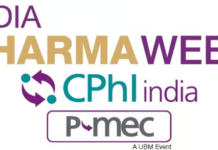- Hypertension, Digestive Diseases, Diabetes, and Brain Disorders are the most prevalent NCDs
- AP and Telangana have a 16.19% prevalence of key NCDs vs. the national average of 11.62%
Hyderabad, August 20, 2021: The Associated Chambers of Commerce and Industry of India (ASSOCHAM), the apex trade association of the country, as part of its ‘Illness to Wellness’ campaign, today unveiled Andhra Pradesh (now Andhra Pradesh and Telangana) specific findings of India’s largest primary healthcare survey report on the rising burden of non-communicable diseases in the country. This was followed by a virtual panel discussion on “Non-Communicable Diseases: The New Health Challenges for Telangana and Andhra Pradesh. The survey report titled “Non-Communicable Diseases in India” covered 2,33,672 people and 673 public health offices in 21 states to analyse the rising cases of NCDs in the country and the social profile of suffering households.
The survey highlighted that Andhra Pradesh and Telangana have a 16.19% prevalence of key NCDs which is higher than the national average of 11.62%. These states particularly have a higher prevalence of non-communicable diseases (NCD) like hypertension, digestive diseases, diabetes, and neurological diseases as compared to the National Average Prevalence Rate of these diseases. This is similar to the overall national trend where hypertension, digestive disease, and diabetes emerge as the top three NCDs followed by respiratory diseases, brain disorders, heart diseases, kidney disorders, and cancer in the order of prevalence.
|
Non-Communicable Diseases |
Risk Factors |
|
Hypertension |
High Stress, Workplace and Home Pollution, High Consumption of Red Meat, Lower Vegetable and Fruit Consumption |
|
Digestive Diseases |
High Stress, Salty and Spicy Food, Lifestyle Choices, High Consumption of Red meat, Lower Vegetable and Fruit Consumption |
|
Diabetes |
Salty and Spicy Food, Lifestyle Factors – High Stress, Low Physical Activity |
|
Brain Disorders |
Workplace and Home Pollution |
Delving on the risk factors associated with NCDs, the report highlighted that significantly higher stress levels in the region than the national average are leading to heart, diabetes, and digestive disorders in Andhra Pradesh and Telangana. It stated that 63% of respondents in the region face high stress. The report further underlined that the region has higher physical activities, which is reflected in lower BMI. However, the likely positive impact of the same on reducing the vulnerability to obesity related NCDs is significantly reduced by other factors like choice of food including salt and chillies intake and lifestyle choices.
The study also found that high workplace pollution in the region is a major contributing factor to diseases related to neurology, heart, and lung. This is mainly due to high mining, stone quarrying, and construction activities in the region. Home air pollution was also found to be significantly contributing to hypertension and neurological disorders in the region. The problem of workplace air pollution was recognised by 82% of the respondents while 76% accepted that they face home air pollution.
The region shows lower vegetable and fruit consumption coupled with high meat consumption than the national average. As per the study findings, 90% of the respondents from Andhra Pradesh and Telangana consume non-vegetarian food with 68% consuming red meat. This has implications on NCDs affecting the digestive system, heart, and hypertension. Incidentally, tobacco consumption was found to be below the national average in both the states, and thus their impact on the prevalence of NCDs relating to hypertension, heart diseases, and diabetes in the state is likely to be insignificant in line with the national findings.
|
Non-Communicable Diseases |
National Average Prevalence Rate |
State Wise Prevalence (AP & Telangana) |
|
Hypertension |
3.60% |
8.54% |
|
Digestive Diseases |
3.05% |
5.65% |
|
Diabetes |
2.85% |
4.69% |
|
Brain Disorders |
1.3% |
2.52% |
|
Kidney Diseases |
0.4 |
0.66% |
The study observed that while the national prevalence rate of hypertension is 3.60%, its prevalence in the state of Andhra Pradesh and Telangana is 8.54%. This is followed by digestive diseases and diabetes that have a prevalence rate of 5.65% and 4.69% respectively in both the states. Digestive diseases have a national average prevalence rate of 3.05% while it is 2.85% for diabetes. The prevalence rate of brain disorders and kidney diseases in each of these states stands at 2.52% and 0.66% respectively. This is again higher than the national average prevalence rate of 1.3% for brain diseases and 0.4% for kidney diseases. The prevalence of heart diseases, cancer, digestive diseases, and respiratory diseases were found to be lower in Andhra Pradesh and Telangana when compared to the national average prevalence rate for these diseases.
The Covid-19 pandemic has brought a sharper focus on health care. Patterns emerging from Covid management across the country indicate that people with co-morbidities of non-communicable diseases (NCDs) have a higher mortality rate than those who do not. This has grave implications for the country not only because of mortality and years of healthy lives lost but also because of India’s health infrastructure.
The panelists were unanimous in their praise for Assocham India for coming up with a comprehensive report on non-communicable diseases in the country to create awareness and sensitise the public as well as policymakers who look for such reports. They agreed that NCDs are preventable and with changes in lifestyle, dietary habits, and increase in physical activities among others its prevalence can be reduced/checked. Panelists further stressed on the need to take necessary preventive actions for early detection and treatment if conditions of specific NCDs are setting in and towards this strengthen the country’s existing healthcare system to make it accessible to all.
Dr. C H Vasanth Kumar, Senior Consultant Physician, Apollo Hospitals, Hyderabad, Current President Elect, Research Society for Study of Diabetes in India (RSSDI), said, “NCDs are a real threat to human life as it affects everyone irrespective of age, the financial status or background. Prevention and early detection are key to arresting the rising cases of NCDs. Towards this, parents, society, and government must come together for a decisive win against the disease which is gripping the world including India. I am thankful to ASSOCHAM India and TARI for conducting this study and enlightening us with some lesser-known facts about NCDs. I hope more such initiatives will be taken to create awareness about NCDs among the masses and promote treatment-seeking behavior for early detection and cure.”
Dr. K. S. Soma Sekhar Rao, Consultant Gastroenterologist & Hepatologist, Department of Medical Gastroenterology and Hepatology, Apollo Health City, Jubilee Hills, Hyderabad added, “ASSOCHAM India deserves kudos for organising such an enlightening session on NCDs. Health education and forums like this can certainly go a long way in improving awareness about NCDs among the masses. An unhealthy gut is the mother of all diseases, and we must take good care of our gut from a very young age for a long and healthy life. I would like to stress the importance of consuming a healthy diet, regular exercise, and modification of a sedentary lifestyle. With these simple changes, we can bring a lot of difference in our lifestyle and make ourselves less vulnerable to NCDs.”
Starting the panel discussion with a shloka from Atharva Veda, Dr. Rajesh Kesari, Founder and Director, Total Care Control, said,” NCDs have become a major health challenge in each country of the world including India. The amount of people suffering from NCDs in our country is simply huge and a lot of lives have already been lost to these diseases. Such diseases are an impediment to the socio-economic development of our country. We have been suffering from NCDs for a long time, and we must do something about it. We must make some changes in our lifestyle and take medication to survive the immense pain that such diseases may inflict upon us and on our near and dear ones.”
The ASSOCHAM webinar was addressed by Mr. Kaushik Dutta, Founder and Co-Director, Thought Arbitrage Research Institute (TARI), and top doctors which included: Dr. C H Vasanth Kumar, Senior Consultant Physician, Apollo Hospitals, Hyderabad, Current President Elect, Research Society for Study of Diabetes in India (RSSDI); Dr. K. S. Soma Sekhar Rao, Consultant Gastroenterologist & Hepatologist, Department of Medical Gastroenterology and Hepatology, Apollo Health City, Jubilee Hills, Hyderabad. The discussion was moderated by Dr. Rajesh Kesari, Founder and Director, Total Care Control.
Corporate Comm India (CCI Newswire)























